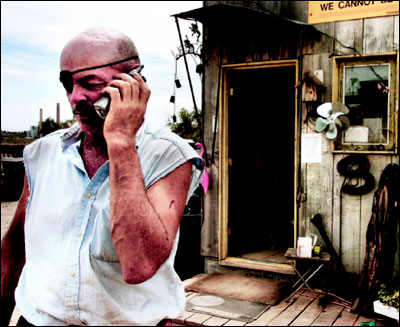 The Bill & Melinda Gates Foundation has developed a well-deserved reputation for funding innovative programs revolutionizing solutions for social issues. Navigating a path that only for-profit businesses dare venture down, the Gates Foundation funds a wide range of ground-breaking programs that challenge traditional peer-approved thinking on vaccines, agro-farming and many other treatment oriented-solutions.
The Bill & Melinda Gates Foundation has developed a well-deserved reputation for funding innovative programs revolutionizing solutions for social issues. Navigating a path that only for-profit businesses dare venture down, the Gates Foundation funds a wide range of ground-breaking programs that challenge traditional peer-approved thinking on vaccines, agro-farming and many other treatment oriented-solutions.
Yesterday however, a New York Times article covered yet another strategy that they are pursuing, collaborative message placement in mainstream television programming. These are not your average PSA’s (public-service-announcements) donated by networks but rather longer-term initiatives that strive to create plot lines that will disseminate accurate information on topics that are widely misunderstood. The objective is to use entertainment content as a vehicle for educating mainstream audiences on topics such as HIV/AIDS and education in the hopes of influencing public views and behaviors.
One of these initiatives, Get Schooled, is a partnership with Viacom that will weave education-themed story lines into existing shows or create new shows centered on education. While some groups like the Kaiser Foundation have been doing this in some form for years, this approach is vital and new because programming content will get paid for – thus get done well and not simply under advisement.
The business of pop culture should not be treated as a separate entity from the real social issues we face, rather social issues should be treated as content that can prove to be both a valuable business avenue with a worthwhile upside.
What’s next…video games?
photo credit: Kalos2007 on Creative Commons



